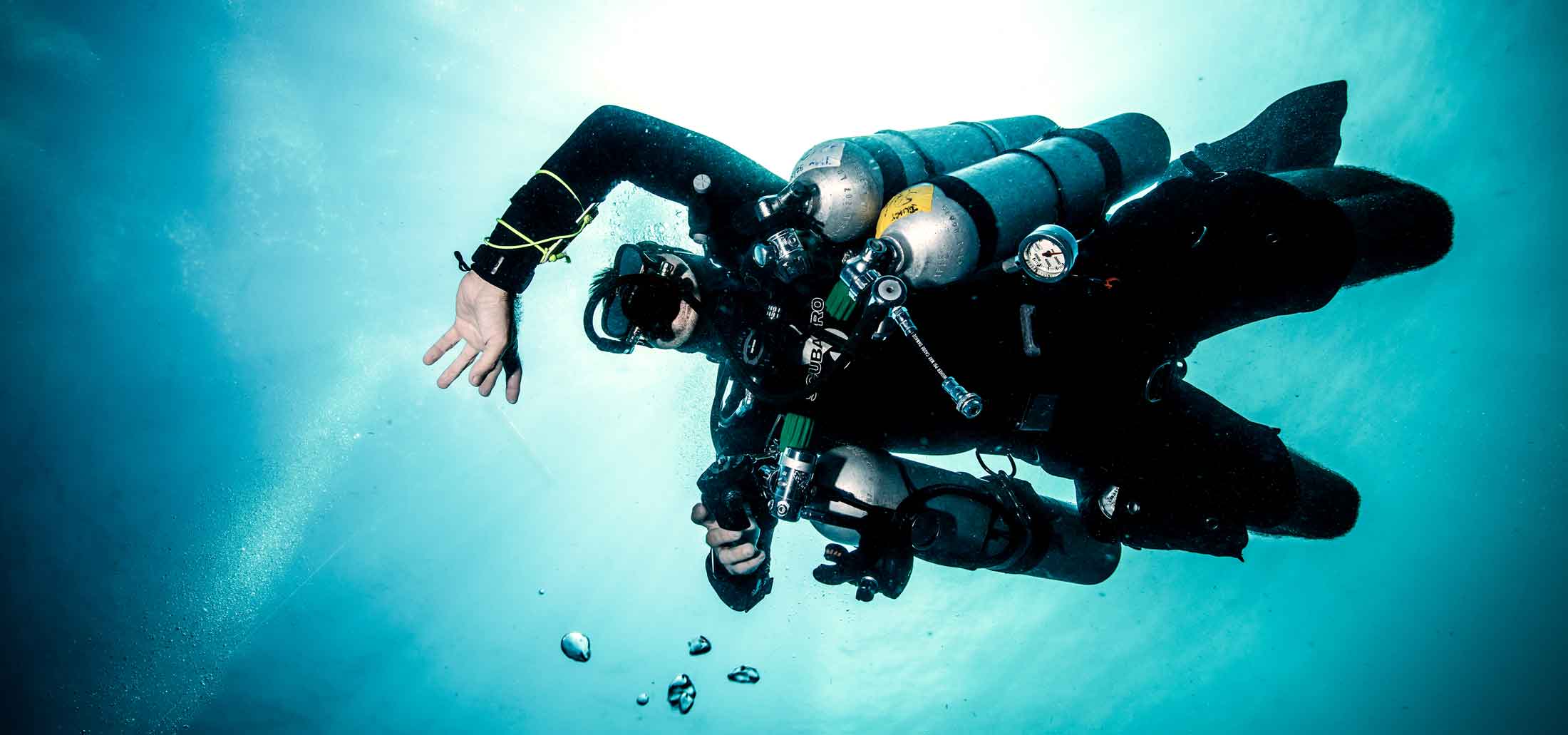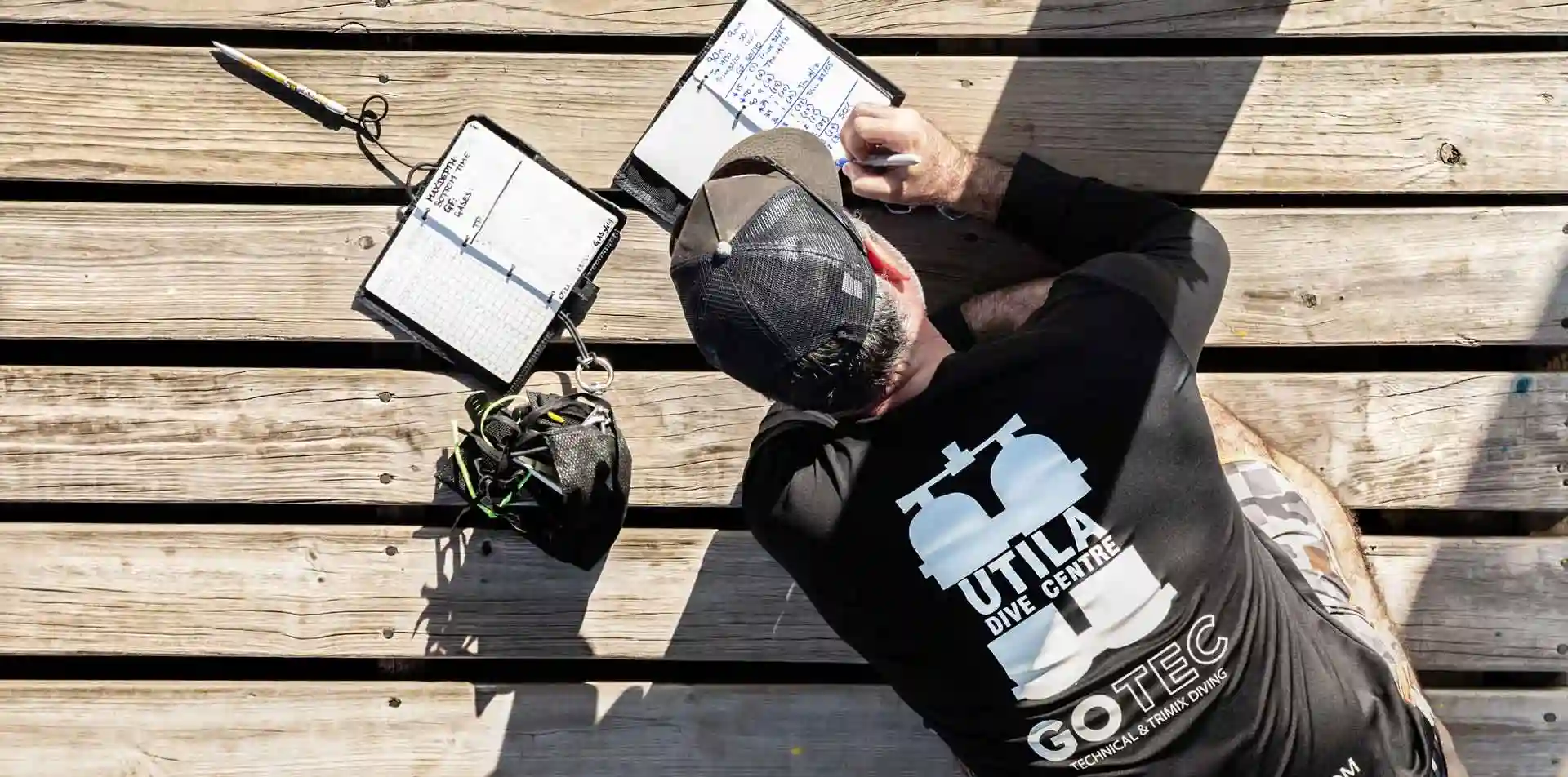
Technical Diving | Padi Tec - Deep Courses
Take your recreational diving to new depths with the most experienced team of Technical Divers in the Caribbean and explore some of Utila’s most unique and untouched locations. Each of our TEC courses can be taken individually or scheduled in one continuous program!
Technical diving is an exhilarating and demanding adventure that pushes the boundaries of traditional scuba diving. It involves diving beyond the recreational limits, exploring deeper depths, and undertaking complex dive plans. Technical divers employ specialized equipment, such as mixed gas blends, rebreathers, and redundant systems, to ensure safety and extend bottom time. These dives require meticulous planning, rigorous training, and a strong understanding of decompression theory. Navigating intricate underwater environments, such as caves or wrecks, technical divers experience breathtaking sights and encounter unique marine life. With each dive, they embrace the thrill of exploration while embracing the responsibility and discipline required to safely delve into the depths of the underwater world.
It’s definitely not your average dive– it requires preparation, precision, specialized equipment and advanced training to dive deeper and push your limits!
Why Choose Utila Dive Center?
At Utila Dive Center, we’re all about making your diving experience as fun as possible. With over 20 years of experience in the business, we cater to divers of all levels– from beginners diving for the first time to pros looking to level up with technical diving and advanced PADI certifications.
Here’s what makes us stand out:
- Expert instructors - Our instructors are experienced and extremely passionate about what they do. They’ve got the skills and knowledge to guide you through every step of the technical diving courses, no matter where you are in your scuba journey.
- Comprehensive Training Programs - All our technical diving courses are designed to be hands-on and engaging and cover everything you need to know, from basic skills to advanced techniques. Plus, we keep class sizes small, so you get the personal attention you need and enough time to practise your technical diving skills.
- Unique Dive Sites - Utila is home to some of the most beautiful dive sites. Picture colourful coral reefs, swimming with whale sharks, or exploring hidden underwater gems. Each site in Utila offers something special!
Our Technical Diving Courses
If you're an experienced diver ready to dive deeper and uncover more thrilling underwater spots, our technical diving courses are just what you need.
What you will learn and do in all TEC courses:
- In-depth theory on all aspects of technical diving.
- Dive planning and the use of up-to-date decompression software to plan your deco dives.
- Practical sessions where you learn different styles of technical diving gear and how it all goes together.
- Confined water training sessions where you will master a whole new skill set to take you beyond recreational depth limits safely.
- Two open water training dives where you run simulations and master skills before utilizing them on decompression dives.
- One Open Water decompression dive at one of the deeper sites in Utila not many people get to explore.

PADI Tec 40
The PADI Tec 40 course is the entry-level course into the technical diving world and provides a transition from recreational diving to technical diving. As a TEC 40 diver, you will be qualified to make dives with up to 10 minutes of decompression, and you will also be trained to carry a stage tank with up to 50% nitrox to make your decompression more conservative.
To enroll on the Tec 40 course you must meet certain requirements:
- You must be over the age of 18.
- You must be certified as an advanced open water diver or higher.
- You need to be Nitrox certified.
- You have to be Deep certified or have proof of 10 dives to 30m/100ft.
- 30 logged dives (10 using nitrox and 7 deeper than 30m/100ft).
- Signed medical by a physician within the last 12 months.
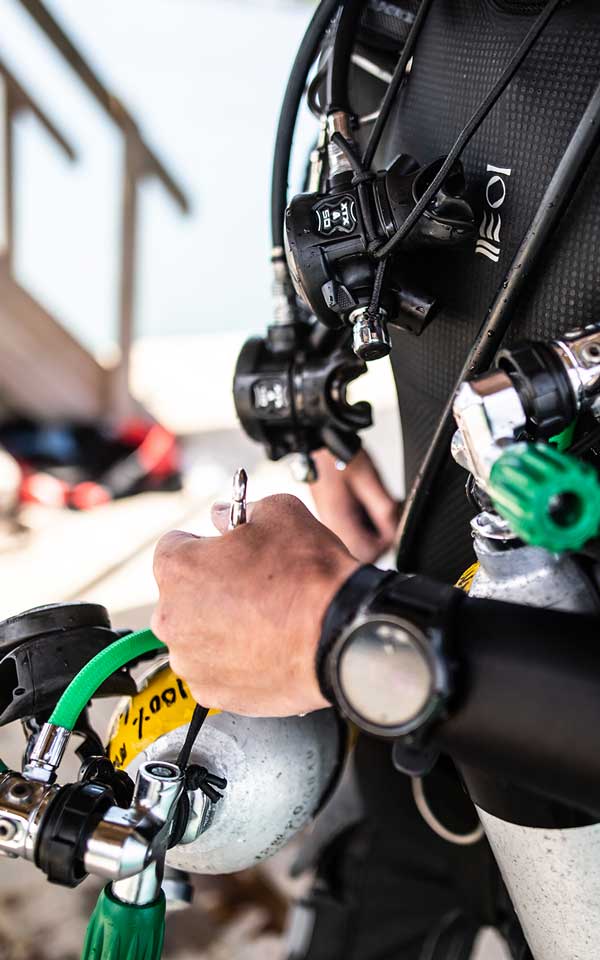
NEXT DEPTH
TEC 45
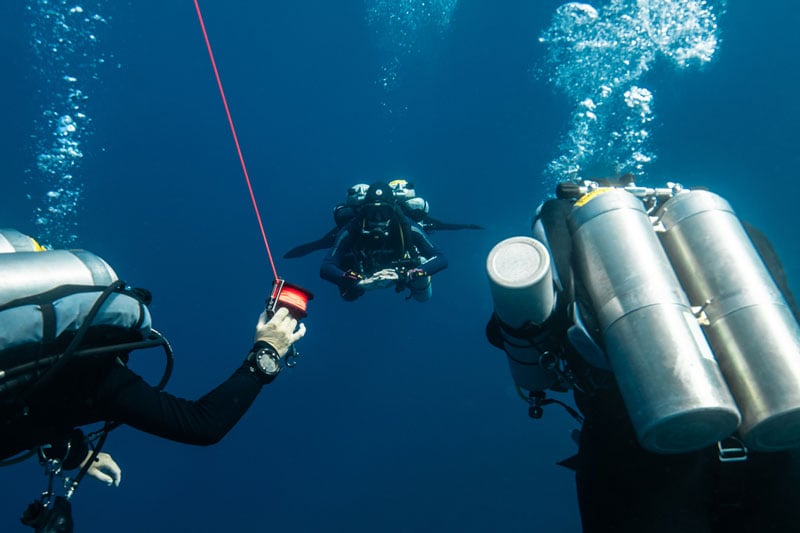
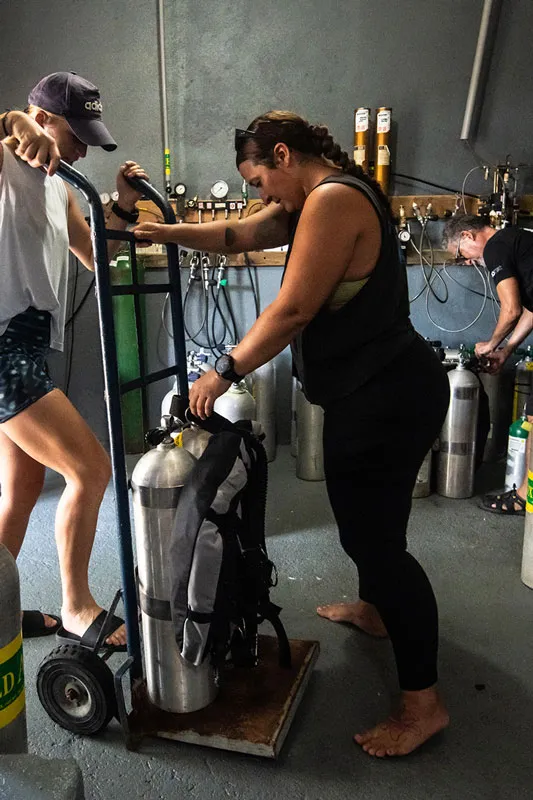
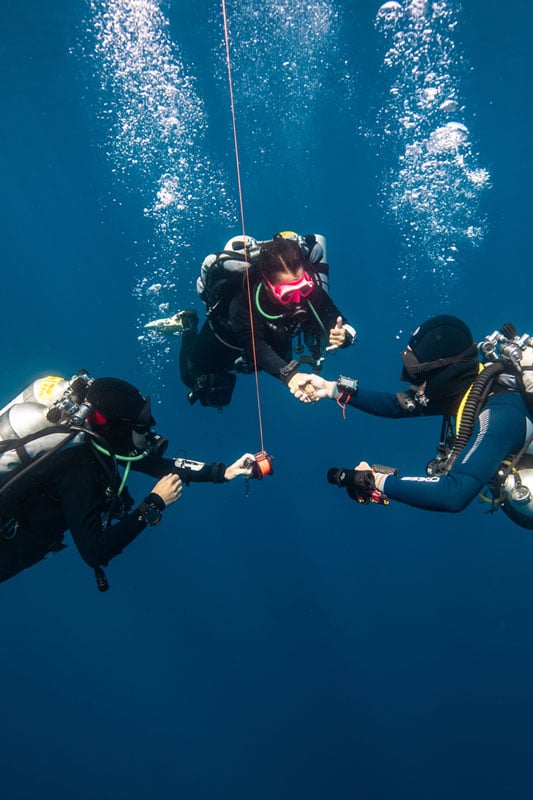

PADI Tec 45
Take your TEC education to the next step and go even further in the TEC 45 course! As a Tec 45 diver you will be trained to go beyond recreational depths to a maximum depth of 45m/145ft. You will also be trained to manage longer decompression times and how to handle one stage cylinder containing 02 for accelerated decompression.
To enroll in the Tec 45 program you must meet certain requirements:
- Tec 40 certified or Equivalent from another training agency.
- You must be certified as a PADI Rescue Diver or equivalent.
- You need 50 dives, 12 deeper than 18m/60ft using nitrox and 6 deeper than 30m/100ft with or without nitrox.
- Signed medical statement by a physician within the last 12 months.
“Dive with the team that set the record for the deepest dive on Utila!”
GO DEEPER
TEC 50

PADI Tec 50
Master and perfect your TEC Diving Skills with the TEC 50 Course. This qualification represents a high level of competency for a technical diver. The diver is qualified to use air for bottom gas and two decompression mixes up to 100% Oxygen to make accelerated decompression dives to a maximum depth limit of 50 meters / 165 feet. The skills you learned during your TEC 40 and TEC 45 courses will be put to the test and fine-tuned before completing two decompression dives to a maximum depth of 50m/165ft.
To enroll in the Tec 50 course, you must meet certain requirements:
- Certified as a TEC 45 diver or equivalent from another agency.
- Certified as a PADI Rescue Diver or equivalent.
- Signed Medical statement by a physician within the last 12 months.
- You must be Deep certified or have proof of 10 dives to 30m/100ft.
- 30 logged dives (10 using nitrox and 7 deeper than 30m/100ft).
- Signed medical by a physician within the last 12 months.
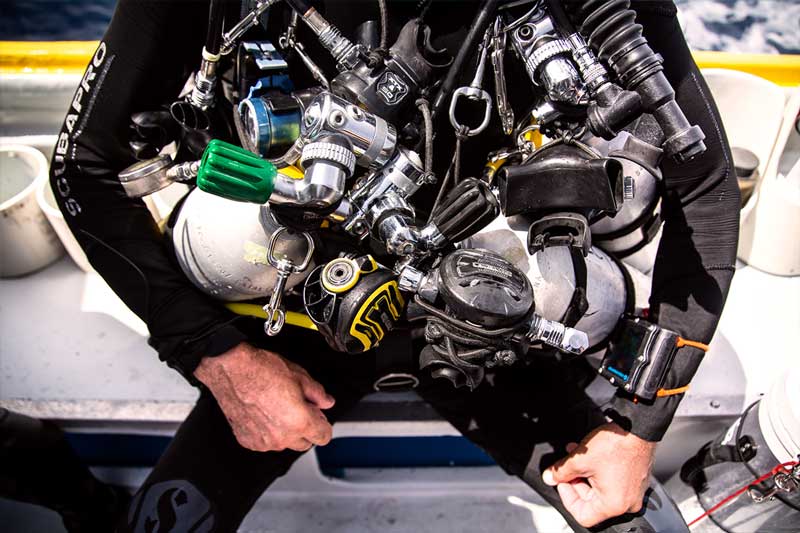

AND MORE TECHNICAL TRAINING PACKAGES AVAILABLE


FREQUENTLY ASKED QUESTIONS
What is the difference between recreational and technical diving?
Recreational diving is for exploring shallower, easier-to-reach spots with basic equipment and no need for decompression stops. Technical diving goes deeper and uses special gear and gas mixtures, with complex dive plans and decompression stops to tackle the increased risks.
How long does it take to complete each technical diving course?
The duration of our technical diving courses varies. Typically, each course takes between 4 to 10 days to complete, depending on the level of complexity and your prior experience. This includes both classroom lessons and practical diving sessions.
Do I need prior diving experience for technical diving?
Yes, you need prior diving experience for technical diving. For our Tec 40 course, you need at least 30 logged dives and must be a certified advanced open-water diver or higher. For the Tec 45 course, you need 50 dives and must be a certified PADI Rescue Diver or equivalent. And for our Tec 50 course, you must be certified as a TEC 45 diver or equivalent from another agency and need at least 30 logged dives.
Is it possible to complete all technical diving courses in one trip?
Completing all technical diving courses in one trip can be a little tough due to the amount of training needed. It’s usually better to spread them over several trips to make sure you learn and practice thoroughly. Reach out to us for advice on how to plan your courses effectively.
What equipment is used in technical diving?
In technical diving, divers use specialised equipment including multiple tanks with different gas mixtures like nitrox or trimix, advanced regulators, and backup systems. You also need buoyancy control devices and underwater computers to manage deeper and more complex dives safely.
How do I prepare for a technical diving course?
To prepare for a technical diving course, make sure you have the necessary basic diving skills and required experience. Review diving basics, get used to using advanced equipment, and stay in good shape. Check the course requirements on our website and make sure you're ready for the more challenging parts of diving.
